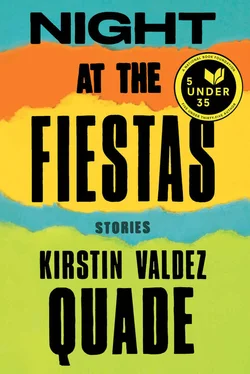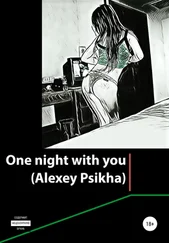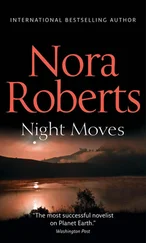When I was in kindergarten, I used to beg my grandfather to move us to Estancia, because it is a town with a store and a school and a senior center, where he and I can have lunch for a dollar, dessert included. Now I understand what he has never told me, that we must watch over Cuipas until it shrinks to nothing, until the houses are mud once more, and dead Uncle Fidel’s bar collapses to splinters.
SOMETIMES, WHEN MY GRANDFATHER is well and I skip school, we walk together, and he tells me again the history of this place: the original land grant, thirty thousand acres given years ago to my grandfather’s great-great-great-grandfather, parceled smaller and smaller through the generations, until our piece, my grandfather’s and mine, which he put in my name on my seventh birthday, became twenty-five acres, and not the best twenty-five, but grassland. I wish it were in the mountains, with a spring and tall, fragrant piñon. I would walk there in the fall and gather the dropped nuts, roast them to eat through the winter, sell the surplus in bags along the road. But my land is good only for cattle, which I do not have.
“When I was a boy,” my grandfather said last time, as we stepped across the dry riverbed, “the water ran all the time. My cousins and me, we used to catch tadpoles and crayfish in jars.”
“Where did the water go?” I asked.
My grandfather squinted as if trying to remember. “Perhaps it was diverted into the bean fields. Perhaps it rains less now. Perhaps it all happened when I was at war.”
My grandfather has told me that Cuipas was one place before he left and another when he returned. Though he was in the Army for two years, the war had already ended, so he lived in Rome, an eighteen-month vacation, he said, on the government’s dime. Each day he swam in Mussolini’s pool. It was the first and best pool he’d ever seen, huge, lined with marble smooth under his feet. My grandfather was strong, glistening, brown muscle in blue water.
He almost married a girl there. Silvia Donati. As we walked along a furrow in the bean field — the plants no higher than my calf, leaves broad and soft and heart-shaped — I asked him to tell me about her again.
She had buckteeth, my grandfather said, and the palest, rosiest skin he had ever seen, and black-black hair. She lived with her mother above their hat shop, and she made ladies’ hats.
Each afternoon after his swim — back in his uniform, wet hair combed — my grandfather sat across from her at the table by the open window, waiting as she finished her work. He listened to the sharp scissors pressing through wool felt and to voices in the street below, watched her pale hands as she steamed and formed the pieces on faceless wooden heads. When my grandfather left Italy, she gave him a hat for his mother in Cuipas: gray with pink velvet roses. For years my great-grandmother and Silvia Donati wrote each other, one in Spanish, the other in Italian, until my great-grandmother died. I often wonder if Silvia Donati heard about my grandfather’s marriage, or my mother’s birth, or my grandmother’s death in one of those letters. I wonder if she heard about me, if she knows that these days we live alone.
She would be an old woman now. I like to think she does not dye her hair. I like to think she has kept a trim figure and pink cheeks, perhaps remained a virgin for my grandfather. (This is important, I know, from the romance novels my mother left behind.) I imagine they marry, raise me in Italy beside the sea. They hold hands and walk along the beach, and I trail behind, all of us wearing hats that were fashionable once.
MY GRANDFATHER’S UNIFORM is folded in the cedar chest in the crowded back bedroom where I sleep, and which I once shared with my mother. This is my grandmother’s wedding veil (netting torn), my grandfather’s garrison cap. I don’t know what became of my great-grandmother’s gray hat, whether she wore it until it lost its shape and color, or it was trampled by a horse, or a gust of wind caught it and flung it across fields and mesas. Perhaps she left it on a bus in Albuquerque. Perhaps she gave it away.
There are some papers here, too, records of business long since concluded. And here, the baptismal gowns of lost children, like limp little ghosts.
WHEN THE RIVER DOES RUN, after the late-summer storms, I sometimes pull on a pair of my mother’s old shorts and wade in the muddy water, thinking of Mussolini’s pool. I cup the water in my hands and fling it in a sparkling arc around my head.
If the old women see me walking home, calves muddy, shorts wet, they will shake their heads at my bare legs and call me a cabrasita. Bad little goat. But they don’t blame me too much for my wild ways; they tell each other I am not at fault for being raised by a man alone. They don’t know that I am at fault.
OUR TOWN IS SURROUNDED by grass. Yellow grass on land that shifts and dips like waves. Distance is difficult to judge; the grass is deceptive. The Manzanos rise just beyond our town. I have tried to walk to the mountains, where a man lived for weeks after killing his father-in-law with an iron poker. My grandfather’s father was part of the posse that searched for him. My grandfather has taken me in the car, pointed to the distant spot among the juniper and piñon where they found the murderer’s camp: fire burned down, dusty bedroll. They never found him, though; I imagine him running from their excited voices and the clomp of hooves in dry soil.
Once when I was seven, I played a game that I was the murderer and would be safe when I reached the mountains. The mountains loomed, and I ran through the tall grass and into the sun, burrs catching on my socks and pants. When my breath burned my throat and I could no longer run, I walked, my pursuers getting closer, and fear and guilt clogged my heart. At a barbed fence I parted the wires and slid through, snaring my shirt above my shoulder blade. Long-horned cattle, black and white and mottled, backed away from me, the calves close to their mothers. Two rattlesnakes slithered from my footsteps, sounded a warning. Even the breeze knew what I’d done. When the sun sank behind the Manzanos, Cuipas was small behind me under a depthless violet sky, and the mountains were no closer.
HERE ARE THE PLACES I’ve seen my mother: crossing the field behind the courthouse, hair loose and tangled in the winter wind; through the front window of a bank, filling out a deposit slip; in the school library, glimpsed through the stacks. When I see my mother, it is always from afar or from behind or through glass. Each time my heart flips like a fish in my chest, and each time she is someone else.
My mother left us seven years ago to live in Albuquerque. Perhaps she is there still; perhaps she has moved on to other places: Los Angeles or Chicago or England. She would choose someplace big, I’m sure. She was too young, my grandfather tells me. Never could take responsibility.
MY GRANDFATHER KNOWS the stories of every grave in the dirt churchyard: This is a great-aunt, this a cousin, this a whole family killed by the Spanish flu. The murdered man is here, here a woman who hung herself from a viga in her kitchen after her third stillborn child, but they buried her in sacred ground nonetheless. Profirio Narciso, Nacio Valentin. Maria Candelarita. Maria Ascension. And this here, beside the plaster statue of the Blessed Mother, is my name: my grandmother, whom I never met. When my mother was thirteen, my grandmother left for Santa Fe, where she found work in the post office. My grandfather went after her several times, but each time she refused to return. She came home only to be buried — a heart attack.
Once I asked my grandfather why she left, but he shook his head.
Some of the graves have iron fences around them, with little gates as though for children. Some are decorated with plastic flowers, petals bleached from the sun. I imagine I know which spot will be mine in the churchyard: pressed between my grandfather and the boy whose neck was snapped so many years ago when he was thrown from a horse. Once we are gone, the memory of my mother will be extinguished as well. I wish I could reorder the graves in the yard, straighten the slanting stones, arrange them by date or name.
Читать дальше












